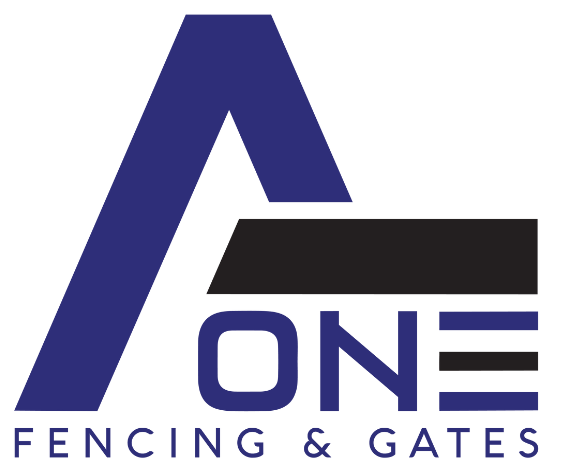PVC Fencing vs. Metal Fencing: Choosing the Right Option for Your Property
Choosing the right fencing for your property isn't easy. Among these, PVC (Polyvinyl Chloride) and metal fencing stand out as popular options. PVC fencing and metal fencing each have their own distinct characteristics, advantages, and disadvantages. These factors can greatly affect the overall appearance, security, and upkeep of your property.
PVC and metal fencing have emerged as leading contenders due to their distinct characteristics.
Aesthetic Appeal and Customization
PVC Fencing: PVC fencing is celebrated for its versatility in replicating the appearance of wood while offering superior durability. With PVC, you can achieve the look of traditional wooden fencing without the susceptibility to rot, termites, or fading.
Metal Fencing: Metal fencing, on the other hand, exudes a timeless and elegant charm.
Durability and Longevity
PVC Fencing: PVC fencing in Gold Coast is renowned for its exceptional durability.
This material has resistance, against rot, insects and harsh weather conditions. PVC fences are also highly durable and less prone, to cracking, warping or splintering over time. This ensures that they maintain their condition for years ahead.
Metal Fencing: Metal fencing, depending on the material chosen, can also offer impressive durability. While steel fences are exceptionally robust and can withstand significant impacts, aluminum fences are rust-resistant and suitable for coastal environments. Regular maintenance can further extend the lifespan of metal fences.
Maintenance Requirements
PVC Fencing: One of the major advantages of PVC fencing is its minimal maintenance requirements. Unlike wood, PVC doesn't require painting, staining, or sealing.
Metal Fencing: Metal fences may require more maintenance, particularly those made of iron or steel. These fences should be inspected for rust and repainted as needed. Aluminum fences, however, are virtually maintenance-free, requiring only occasional cleaning.
Security and Privacy
PVC Fencing: PVC fences offer a moderate level of security and privacy. While they provide a barrier and define property boundaries, they may not be as impenetrable as metal fences.
Metal Fencing: Metal fences are known for their robust security features. They can be built to stand tall and strong serving as a deterrent, for trespassers.
Moreover, metal fences have the ability to incorporate elements that reduce visibility and improve privacy.
Eco-Friendly Considerations
PVC Fencing: PVC fencing is manufactured from non-renewable resources and can have a higher environmental impact during production. Its longevity and low maintenance requirements can, however, counteract some of these concerns in the long run.
Metal Fencing: Metal fencing can be eco-friendlier, especially if you opt for recycled or sustainably sourced materials. Metal fences are also fully recyclable at the end of their lifespan.
Installation Process
PVC Fencing: PVC fencing installation is generally straightforward due to the lightweight nature of the material. It involves securing posts and attaching panels, making it a relatively quick process.
Metal Fencing: Metal fencing installation can be more labor-intensive, especially with materials like wrought iron.
Cost Comparison
PVC Fencing: PVC fencing is typically more cost-effective upfront, making it a budget-friendly option.
Metal Fencing: Metal fencing can be initially more expensive due to material and installation costs.
Weather Resistance
PVC Fencing: PVC is highly resistant to moisture, making it suitable for humid and wet climates. It can withstand rain, snow, and humidity without deteriorating.
Metal Fencing: Metal fences vary in their weather resistance based on the material. Steel fences may be prone to rust in wet environments, while aluminum fences are corrosion-resistant and ideal for coastal areas.
Maintenance Costs Over Time
PVC Fencing: With minimal maintenance needs, PVC fencing's long-term costs primarily involve occasional cleaning, reducing the overall financial burden.
Metal Fencing: Metal fences may incur maintenance costs over time, including repainting and rust prevention, which should be factored into the long-term budget.
Flexibility and Adaptability
PVC Fencing: PVC fences provide a lot of flexibility when it comes to design and color choices which makes it simpler to align them with the aesthetic of your property.
Metal Fencing: Metal fences can be customized to various styles, making them adaptable to different architectural designs.
Noise Reduction
PVC Fencing: PVC fences have some noise-dampening qualities, offering a degree of sound insulation.
Metal Fencing: Metal fences can also reduce noise to a certain extent, depending on the material and construction.
Conclusion
If you value low maintenance, cost-effectiveness, and versatility in design, PVC fencing may be the ideal choice. On the other hand, if security, durability, and a timeless aesthetic are paramount, metal fencing could be the better option. Assess your property's needs and preferences carefully before making a decision.
